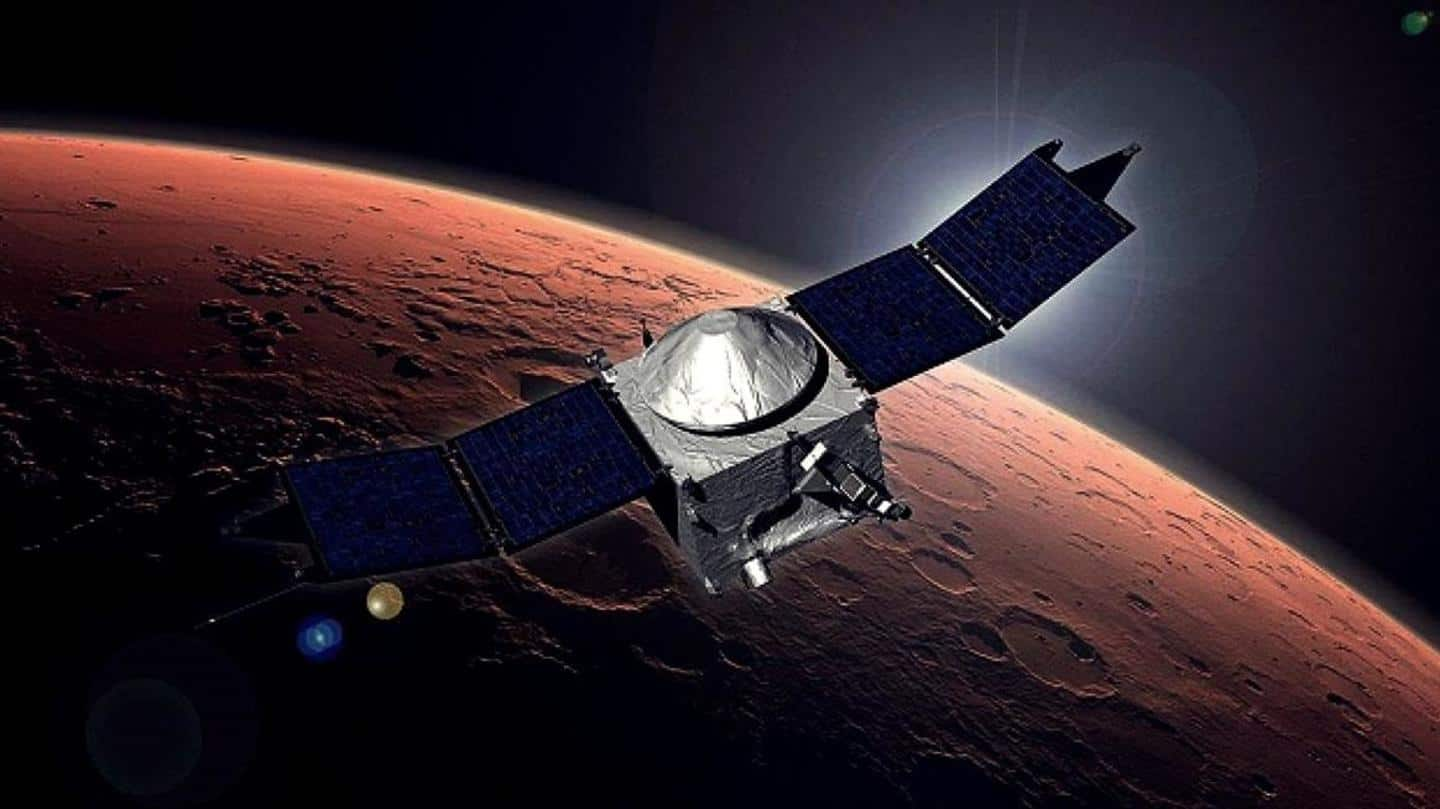
Mangalyaan mission comes to an end after 8 glorious years
What's the story
Mangalyaan, India's first interplanetary mission, was designed to run for six months. The Rs. 450 crore mission, however, kept on going for nearly nine years. Now, it seems that the spacecraft's wild journey has come to an end. According to sources in the Indian Space Research Organization (ISRO), the Mars Orbiter Mission (MOM) has run out of fuel. The mission has gone quiet now.
Context
Why does this story matter?
Until Mangalyaan, no country in the world knew that it was possible to send an interplanetary mission at Rs. 450 crore. It was a cosmic fairytale of sorts - within a short period, a country with no experience in interplanetary missions made a spacecraft and successfully launched it on the first try. As we all know, every fairytale must come to an end.
The end
No fuel left and satellite battery is drained
Mangalyaan was launched in 2013. The spacecraft has been in Mars' orbit for longer than imagined. Now, sources in ISRO have told news agency PTI, "Right now, there is no fuel left. The satellite battery has drained." Although the space agency is yet to make an official remark, it seems that the end has come. "The link has been lost," added the sources.
Reason
Long, back-to-back eclipses drained the satellite's battery
It seems that back-to-back eclipses, including one that lasted for seven-and-half hours, are the primary cause of Mangalyaan's quiet death. "The satellite battery is designed to handle eclipses of one hour and 40 minutes, a longer eclipse would drain the battery," said an official. ISRO has been trying to perform orbital maneuvers to take the spacecraft to a different orbit to avoid eclipses.
Recap
MOM has done its job and yielded significant results: Officials
Mangalyaan was an example to the world in efficiency, cost-effectiveness, and longevity. "It has done its job and yielded significant scientific results," the sources said. MOM carried five instruments, including the Mars Color Camera (MCC), which took over 1,000 images and published a Mars Atlas. It carried five payloads to collect data on surface geology, morphology, atmospheric processes, surface temperature, and atmospheric escape process.
What's next
A second mission to Mars is not a priority now
In 2016, ISRO came out with an 'Announcement of Opportunity' for the next Mars Orbiter Mission (MOM-2). However, the mission is still on the drawing board. It's not a priority mission as of now. "Not in the approved list as of now," a senior ISRO official told PTI. It will only happen after Gaganyaan, Chandrayaan-3, and Aditya-L1.